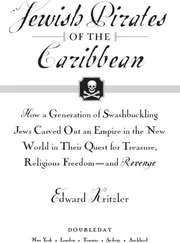“Listen to me. I have three daughters-in-law, and I know what I am talking about. I tell you that it is nothing at all. Believe me, it will pass off. Young women often take like that for no reason, and there is nothing in the least to be alarmed at.”
Dvossa-Malka beamed at him with satisfaction. “Well, well,” she said, pretending to be anxious about Rochalle. “Go away with your talk. It is better to go and have a look at supper on the oven than to stand and listen to you. You must all be very hungry. The supper is later than usual tonight.”
“A tame story!” the reader may possibly exclaim, feeling highly dissatisfied with the fare I have set before him, because of the fact that he has been brought up on the “highly interesting romances” in which there is hanging, and drowning, and poisoning, and shooting on every page. Or, in which perhaps a poor teacher becomes a duke, and a servant-girl a princess, and an under-gardener a troubadour. But, what can I do? Am I to blame if amongst our people there are neither dukes nor princesses? If amongst us there are only ordinary women and musicians, plain young women with no dreams of marvelous transformations, and working men who live from hand to mouth?
But, of what avail are my explanations? At this stage the reader may think what he likes. Once I have succeeded in bringing him so far as this he will not refuse to come a little further with me. He will surely have some curiosity to know what became of Rochalle, and what became of Stempenyu.
A whole year has passed! (What is a single year in a man’s life?) And, once again we find ourselves in the house of Isaac-Naphtali, at the close of the Sabbath day; and, the very same persons are gathered together again that we found there on that memorable night, a twelvemonth back, when Moshe-Mendel promised Rochalle that he would take her back to her own village, in Yehupetz. Nobody has changed by so much as a hair. As usual, they are talking of the fair, of the difficulties of making a living, of the doings of their children, and of the things which took place in the village recently. And, by and by they come to Moshe-Mendel and Rochalle, who are now living in Yehupetz.
“Show it here, Dvossa-Malka — the letter that the children sent us from Yehupetz,” said Isaac-Naphtali to his wife. And, on getting it, he added, “Here, read it for yourself, Reb Youdel.”
“Let him read it,” said Reb Youdel, turning to the young man with the squint.
The young man with the squint took the letter, and read it with great ease and rapidity. It ran as follows —
“Peace and all good to my father — the famous man of piety, the wonderful teacher and rabbi, Isaac-Naphtali, son of Reb Moshe-Joseph, of blessed memory! And, also to my beloved mother, whose piety and fame and virtue are like unto the piety and fame and virtue of Esther and Abigail of old — to my mother, whose name is beautiful — Dvossa, Malka, the daughter of Reb Moshe-Mendel, of blessed memory! And to this whole household I send greetings and peace.
“As the sun shines out through the dark clouds of the blue heavens there on high, in the highest heavens, from out of the blue windows …”
“No, no!” shouted a chorus of voices; not that. “It is only — only — poetry, boyish things, childish nonsense. Read further what is on the other side.”
The young man with the squint turned over the page, and read:
“And as regards your question concerning my livelihood, and business that is carried on here in Yehupetz — I must tell you first of all …”
“Ah, that’s what we want to hear!” said the people, satisfied at last. “Read, young man, read further!”
“I must tell you, first of all, that drapery is sold here in smallwares; but smallwares not so much as drapery. Embroideries are not bad either — not worse than with you. Woolens are dear here, like gold itself. Sugar and flour and bran are also good to trade in. They are sent across the frontier, and Jews earn a fine lot of money through them. Yehupetz is a blessed land! The town itself is terrible. It is worth a man’s while to look at it. In short, it is a different world here in Yehupetz. You may come upon such Jews whom you would never dream of calling Jews. And there is a good trade done in paper here, too. There is trading in everything. And Jews turn around on the Exchange, and buy and sell all sorts of bonds. Brokers make lots of money.
“My wife sends you her friendliest greetings. She is also writing to you herself. May God preserve you all. And I hope we will hear from you the best of news. Amen!
“ P.S . — Then I must tell you that a shop like mine is in the very front of the Alexandrevitz Street. And the income is not all bad. Blessed be He!”
“My wife Rochalle — may she live long! — has learned the business already and can talk to a customer. But as to buying at the fairs — I do that myself. I have credit amongst merchants in Moscow and Lodz. With Moscow it is not bad to deal. Moscow sells honestly and likes a Jewish customer. If a man is doing badly, Moscow comes to his aid and does not let him go down altogether.
“Dwelling-houses are very dear here. For two rooms and a kitchen I pay 175 roubles a year, and have to get my own wood and water. Everything thing is dear here — like gold. Mostly the Jews are middlemen; and of Jewish middlemen there are many here. And Jews earn an honest rouble through it. In short, Yehupetz is a place of business. May God give us health and strength, and I hope to hear the same from you.
“From me, your son, who is anxious for your happiness every day — Moshe-Mendel — the son of my beloved father, Isaac-Naphtali of Tasapevka.
“Greetings to my dear uncle and dear aunt, and his whole family.
“Greetings to the wealthy one, Reb Youdel, and his whole family.
“Greetings to the wealthy one, Reb Dauber, and his whole family.
“Greetings to the wealthy one, Madame Stessa-Beila, and her whole family.
My son Joseph — may his light continue to shine! — sends you all his friendliest greetings.
THE ABOVE NAMED!”
* * *
“I greet my highly honoured and deeply-appreciated father-in-law — may you live long! I wish to let you know that I am in good health, thank God! May the Lord send me no worse. Also, my little Joseph sends you his greetings; and he thanks my mother-in-law for the little shirt, many times over. If God lets him live and is willing to have it so, Joseph will go to school in three or four years’ time. He will learn diligently, please God! And please God! he will grow up a pious Jew. May the Lord send him long years! Amen! Dear Mother-in-law, if you can make for my little Joseph a little cap and a pair of little shoes from embroidery I would thank you very much. I am so much occupied with business and I do not wish to take a nurse for little Joseph. It is not worth while. I hired a little girl and pay her four roubles a month. She rocks the cradle and drives the cow to the meadow. You ought to see what a cow I bought. She gives four quarts of milk a day — beautiful milk; and I have plenty of butter and cheese. But Moshe-Mendel has taken a sudden dislike towards all these things. Please give him a scolding, I beg of you. Joseph has just wakened up. He is hungry, poor dear child!
“I close my letter and send regards to all our relatives and friends. I beg of you to reply to me, and I remain your most affectionate and faithful daughter-in-law,
ROCHALLE”
“Nu!” cried Berrel the Fat One — I hope that my children never be worse off than Moshe-Mendel and Rochalle.
“You are sinning, Dvossa-Malka; you are sinning,” said Youdel. “Yes, you are sinning.”
Читать дальше












